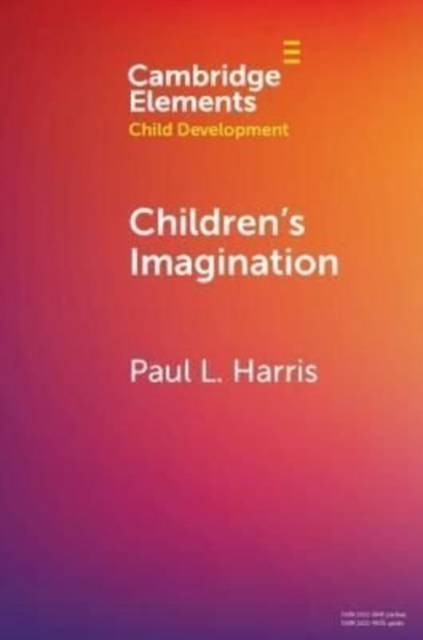
- Afhalen na 1 uur in een winkel met voorraad
- Gratis thuislevering in België vanaf € 30
- Ruim aanbod met 7 miljoen producten
- Afhalen na 1 uur in een winkel met voorraad
- Gratis thuislevering in België vanaf € 30
- Ruim aanbod met 7 miljoen producten
Zoeken
€ 31,95
+ 63 punten
Omschrijving
Children's imagination was traditionally seen as a wayward, desire-driven faculty that is eventually constrained by rationality. A more recent, Romantic view claims that young children's fertile imagination is increasingly dulled by schooling. Contrary to both perspectives, this Element argues that, paradoxically, children's imagination draws much inspiration from reality. Hence, when they engage in pretend play, envision the future, or conjure up counterfactual possibilities, children rarely generate fantastical possibilities. Their reality-guided imagination enables children to plan ahead and to engage in informative thought experiments. Nevertheless, when adults present children with less reality-based possibilities - via biblical narratives or the endorsement of special beings - children are receptive. Indeed, such imaginary possibilities can infuse their otherwise commonsensical appraisal of reality. Finally, like adults, young children enjoy being absorbed into a make-believe, fictional world but faced with real-world problems calling for creativity, they often need guidance, given their limited knowledge of prior solutions.
Specificaties
Betrokkenen
- Auteur(s):
- Uitgeverij:
Inhoud
- Aantal bladzijden:
- 75
- Taal:
- Engels
- Reeks:
Eigenschappen
- Productcode (EAN):
- 9781009066037
- Verschijningsdatum:
- 23/06/2022
- Uitvoering:
- Paperback
- Formaat:
- Trade paperback (VS)
- Afmetingen:
- 152 mm x 229 mm
- Gewicht:
- 117 g

Alleen bij Standaard Boekhandel
+ 63 punten op je klantenkaart van Standaard Boekhandel
Beoordelingen
We publiceren alleen reviews die voldoen aan de voorwaarden voor reviews. Bekijk onze voorwaarden voor reviews.











